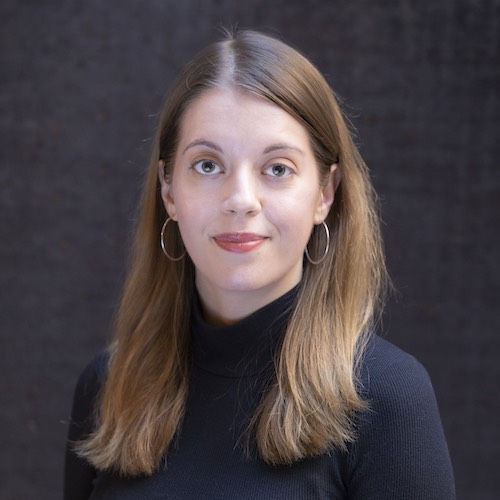
“Holocaust Diaries as Material Artifacts”
Professional Background
Emily Klein received a master’s degree in modern and contemporary literature and culture from the University of St. Andrews (United Kingdom). She also holds bachelor’s degrees in English and international studies from Gonzaga University (United States), where she conducted research with the Digital Humanities Initiative and as a CURCI fellow. Her interest in employing digital methodologies to conduct, analyze, and visualize research is informed by her academic background as well as her professional experience working as a political research analyst.
Klein spent much of her graduate program examining digitized Holocaust diaries and the ways in which Holocaust testimony is transformed into literary formats for public consumption—including the translation of oral testimony into multimedia narratives and how handwritten Holocaust diaries are modified and re-contextualized when they are published. Her dissertation, “‘If My Life Ends, What Will Become of My Diary?’: The Preservation and Remediation of Holocaust Diary Manuscripts,” considered the value of diaries as material objects by focusing on the materiality, provenance, and digitization of three handwritten diaries held in the archives of the USHMM and the Ghetto Fighters’ House.
Fellowship Research
Klein was awarded the 2022-2023 Digital Humanities Associate Fellowship for her research project, “Holocaust Diaries as Material Artifacts.” Klein will investigate the provenance of Holocaust diaries in the Museum’s archives and explore ways of digitally illustrating their journeys from their places of composition to the Museum. She is especially interested in the creation of resources that provide users with new ways of interacting with the diaries digitized by the Museum. She anticipates that such a focus on diaries as objects in motion will also be able to communicate constraints on diarists’ movement, the influential role of custodians, the fragmented resettlement process experienced by displaced survivors, and the geographic extent of the diaspora catalyzed by the Holocaust. Klein will draw from the Museum’s collection of diaries, archival material, and interviews about specific artifacts to construct detailed accounts of diary provenance and consider how best to visualize it.
